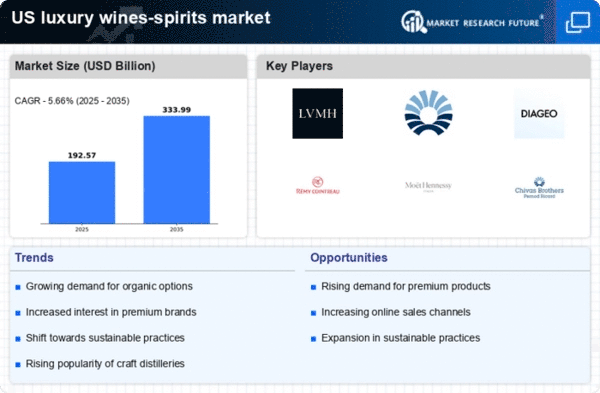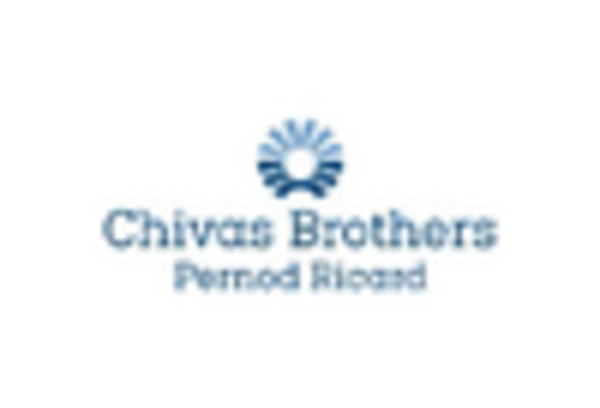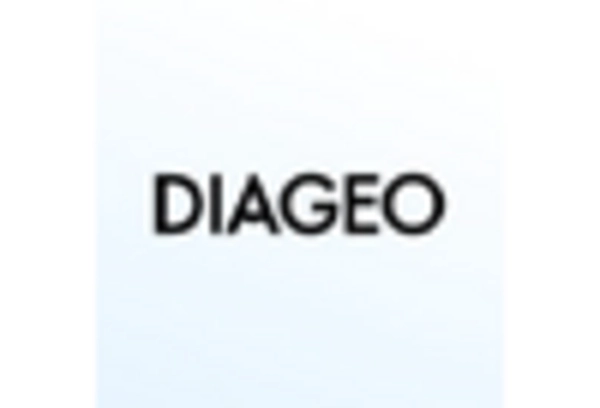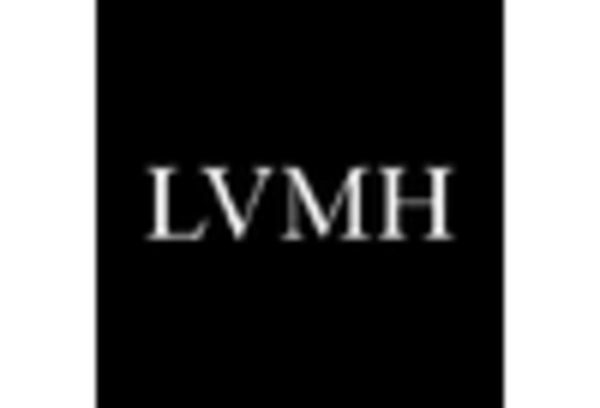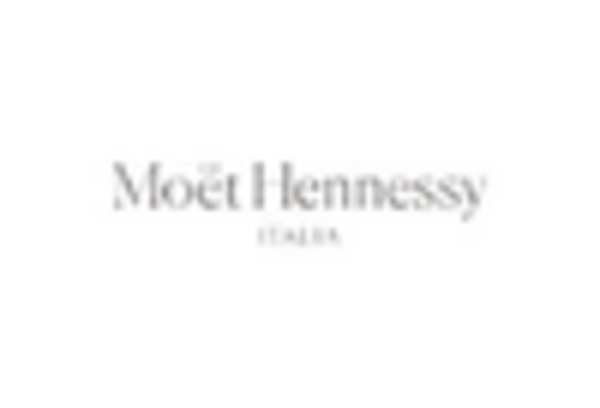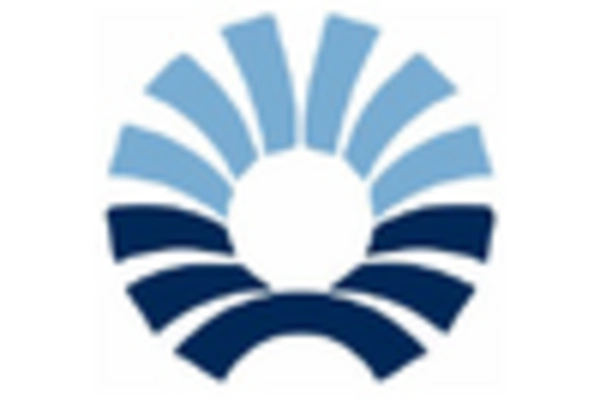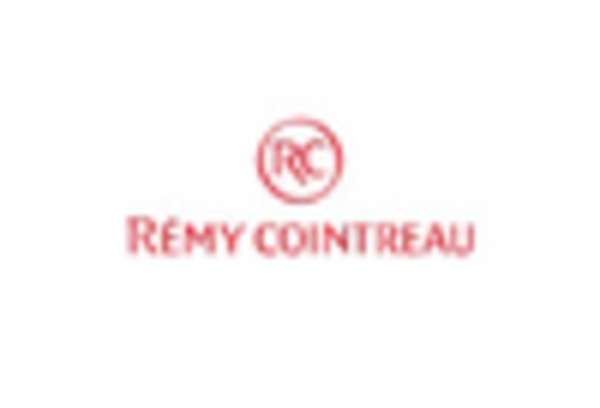Health and Wellness Trends
The luxury wines-spirits market is also influenced by the growing health and wellness movement among consumers. There is an increasing demand for organic, low-calorie, and low-sugar options within the luxury segment. Consumers are becoming more health-conscious, leading to a rise in the popularity of premium wines and spirits that align with these values. For instance, organic wines have seen a 25% increase in sales over the past year, reflecting a shift towards healthier consumption patterns. This trend indicates that luxury brands must innovate and adapt their offerings to meet the evolving preferences of health-conscious consumers, thereby ensuring their relevance in the competitive landscape of the luxury wines-spirits market.
Cultural and Culinary Pairing
The luxury wines-spirits market is increasingly influenced by the trend of culinary pairing, where consumers seek to enhance their dining experiences with premium beverages. As the culinary scene in the US evolves, there is a growing interest in pairing luxury wines and spirits with gourmet food. This trend is supported by the rise of food and wine festivals, which have become platforms for showcasing the synergy between high-quality food and luxury beverages. Data indicates that 70% of consumers are more likely to purchase a luxury wine or spirit if they have experienced it in a culinary context. This suggests that the luxury wines-spirits market must continue to engage with the culinary community to create unique pairing experiences that resonate with consumers.
Experiential Consumption Trends
In the luxury wines-spirits market, there is a marked shift towards experiential consumption. Consumers are increasingly seeking unique experiences associated with luxury products, such as vineyard tours, tastings, and exclusive events. This trend is particularly pronounced among younger consumers, who prioritize experiences over material possessions. Data suggests that 60% of millennials prefer spending on experiences rather than physical goods, which has led to a rise in demand for luxury wines and spirits that offer immersive experiences. As a result, brands are adapting their marketing strategies to focus on storytelling and creating memorable moments, thereby enhancing the overall value proposition of their products in the luxury wines-spirits market.
Growing Affluence and Wealth Distribution
The luxury wines-spirits market is experiencing a notable surge due to the increasing affluence among consumers in the US. As disposable incomes rise, particularly among millennials and affluent individuals, there is a growing willingness to spend on premium products. According to recent data, households with an income exceeding $100,000 have shown a 15% increase in spending on luxury wines and spirits over the past year. This trend indicates a shift in consumer behavior, where luxury items are perceived not just as indulgences but as essential components of lifestyle and social status. The luxury wines-spirits market is thus benefiting from this demographic shift, as more consumers seek high-quality, exclusive products that reflect their elevated social standing.
Digital Marketing and Social Media Influence
The luxury wines-spirits market is significantly impacted by the rise of digital marketing and social media platforms. Brands are increasingly leveraging these channels to reach a broader audience and engage with consumers in innovative ways. Social media influencers play a crucial role in shaping consumer perceptions and preferences, particularly among younger demographics. Recent studies indicate that 40% of luxury wine and spirit purchases are influenced by social media recommendations. This trend underscores the importance of a robust online presence and targeted marketing strategies in the luxury wines-spirits market, as brands strive to connect with consumers in a digital-first world.


